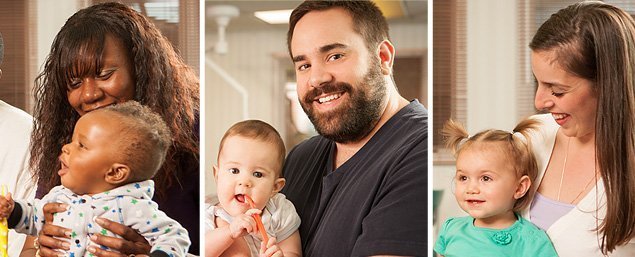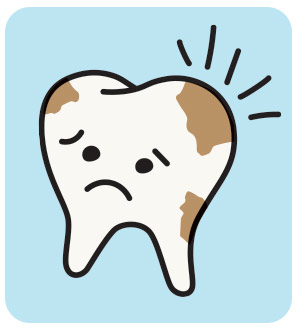





Many of us have heard of cavities, but what are they?
A cavity is a hole in the tooth that grows bigger and deeper over time. Cavities are also sometimes called dental caries. Harmful bacteria from cavities can spread easily within a family.
Having a cavity can be a serious problem, even for babies and young children. If is not fixed, a cavity can cause a lot of pain, lost sleep, difficulty learning, and poor general health. If a cavity is in a baby tooth, it can damage the permanent teeth underneath that haven't come in yet. If cavities are not treated for a long time, they can even lead to hospitalization and dental surgery that requires your child to be under general anesthesia.
 How to tell if your child has a cavity
How to tell if your child has a cavityHealthy baby teeth are white and shiny and do not hurt. Healthy gums are pink, surround the tooth tightly, and don't bleed. Cavities usually start in the upper front teeth and move to molars and lower front teeth.
Every child can experience cavities differently, but some signs that your child might have a cavity include:
The good news is that cavities are easily preventable - if you know how they are caused and how to prevent them.
Cavities are caused by:
Ways to prevent cavities:
One of the best ways to help prevent cavities is to bring your child to the dentist by age one for a simple checkup. You'll have a chance to ask questions, and the dentist will gently examine your child's teeth to make sure they're off to a healthy start.
